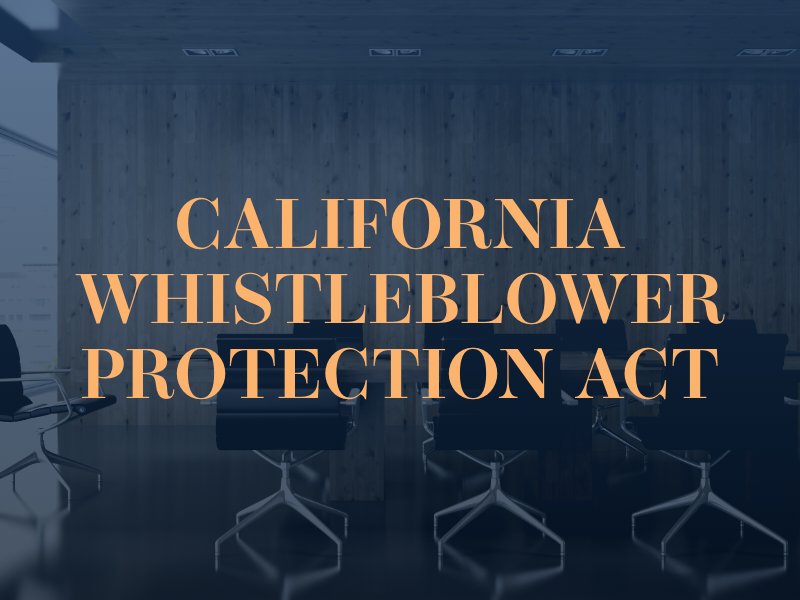Whistleblower laws are put into place at the federal level and at the state level to help prevent employees from being retaliated against for reporting various violations of law or public policy. For example, whistleblower laws can help protect a person who comes forward to report sexual harassment or discrimination in the workplace. These laws can also protect a person reporting about illegal activity on the part of their employer or about unsafe work conditions. Whistleblower laws provide vast protections for workers in this state. Read on to learn more about them and if you have additional questions, speak with an Orange County employment attorney.

California’s General Whistleblower Protection Law
Labor Code 1102.5 LC is the source for the general whistleblower protection law in this state. This law prohibits employers from retaliating against employees for doing the following:
- Disclosing information that the employee believes to be a violation or non-compliance with a regulation or law to a regulatory or law enforcement agency, a person with authority over the employee, or another employee who has the authority to investigate the issue.
- Providing information or testifying in front of a public regulatory body conducting an investigation, inquiry, or hearing about what the employee believes to be a violation or non-compliance with a regulation or law.
We do want to point out that the whistleblower protections extended under this law will apply to an employee even if it turns out that an employer did not violate a law or public policy. So long as the employee reasonably believed that a violation had occurred, they are protected from retaliation.
Some of the most common ways that employers retaliate against employees include the following types of behaviors:
- Wrongful termination
- Demotion
- Changes to less desirable shifts
- Harassment in the workplace
- Pressure to resign
- Changes in pay
- Failure to promote
- …and more
Other Whistleblower Laws in California
There are other types of laws that provide whistleblower protections for specific employee complaints in California. California Labor Code 98.6 LC prohibits an employer from retaliating against an employee because they report violations or supposed violations of wage and hour laws. This can include instances of employers paying less than minimum wage, failing to pay required overtime, or failing to provide rest or meal breaks.
Labor Code 6310 LC prohibits employers from retaliating against employees who report any violations of health and safety rules to the California Division of Occupational Safety and Health (Cal/OSHA).
Common Reports Made by Whistleblowers
There are various reasons why employees may need to report violations of law or public policy to the appropriate supervisor or regulatory agency. Some of the most common types of whistleblower complaints include the following:
- Reports of workplace harassment or discrimination
- Violation of state or federal labor laws
- Reporting unsafe working conditions
- Reporting illegal dumping or pollution
- Reporting of wasteful activities by public agencies
- Tax fraud
- Health care fraud
- Stock or securities fraud
- …and more
Working With an Attorney
If an employee feels they have been retaliated against for reporting a violation of law or public policy, they need to seek assistance from a qualified employment law attorney as soon as possible. A lawyer can use their resources to investigate every aspect of these claims and help victims recover the compensation they are entitled to. This could include coverage of unpaid wages, reinstatement to a job, possible promotions, and even punitive damages against the employer.

